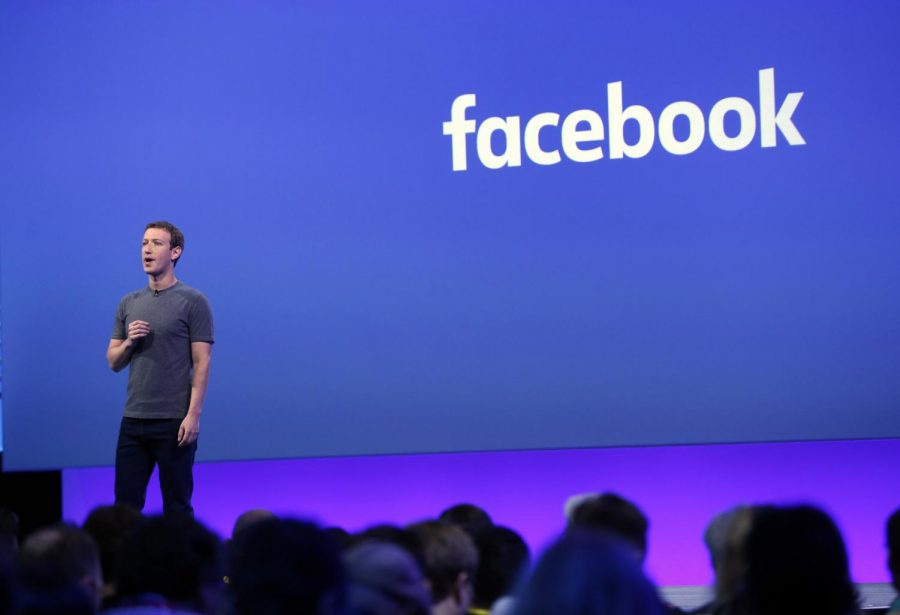Regulating Facebook: Our data isn’t for sale
Cambridge Analytica, a firm employed by the Trump campaign, collected, stored and used the data of 50 million Facebook users. Columnist Kyra writes that the best regulation to fix this problem would actively focus on preventing companies like Facebook from considering their users another form of currency.
April 3, 2018
Who hasn’t been tempted by an online quiz on Facebook? From asking seemingly harmless questions about your favorite show to your horoscope, the frequency of these surveys make last week’s news all the more chilling: Cambridge Analytica, a firm employed by the Donald Trump campaign, collected, stored and used the data of 50 million Facebook users.
At the center of the scandal is Aleksandr Kogan, a Cambridge University researcher who got permission from Facebook to circulate a personality quiz on the social media site that was then used to build personality profiles for all respondents. Facebook only gave him permission to use the data for research — not to forward it to third parties. However, Kogan did exactly that. He and Cambridge Analytica used the information to help the Ted Cruz and Trump campaigns to appeal to disparate voter audiences.
Cambridge Analytica gathered this information without survey respondents’ knowledge. All Facebook users knew was that they filled out a personality test — not that Kogan could access their Facebook profile information, along with that of their friends and family.
This revelation is especially concerning for the generations of us whose entire lives have been documented on social media. We as Millennials or Gen-Zers should be especially concerned about our internet privacy because we will be the first to answer to records that often document every moment in our lives. As a result, we must hold Facebook accountable for abusing our data.
Unfortunately, the scandal is a symptom of a bigger problem: Facebook’s long-standing disregard for its users’ privacy. Back in 2011, the media giant ran into a similar problem. It promised to offer its users varying levels of privacy, making it appear that users would be able to choose which third-party apps had access to their data. But the Federal Trade Commission censured the company for not complying with its own promises. Facebook lied — it shared user data with third-party apps and companies, effectively treating data as a commodity to be sold.
Get The Daily Illini in your inbox!
Now, just six years later, the American public has once again found itself in the exact same place. Facebook appeared to be a site where people could feel comfortable expressing their views with an audience refined by the user, but the social media platform has shown, again, that our data is not safe with them. It is for sale so long as we allow Mark Zuckerberg access.
Given that the company seems to be repeating its mistakes even after federal discipline, Facebook has proven that it can’t be trusted to self-regulate. It’s time for the government to step in. Regulation would look like binding the company to the privacy promises it makes, annually auditing its behavior when it comes to data security or setting out rules for how it maintains and stores the data.
Donald Graham, a former lead independent director of Facebook’s board of directors, opposes regulation. His main concern, in an article posted in The Post on March 26, was that regulation “is an inherently political act.” Graham fears allowing an agency to regulate a platform for modern speech would make it vulnerable to partisan censorship.
That’s where he’s wrong. Maintaining data is different than censorship. Prohibiting Facebook from selling user data at auction is not the same as limiting what people see on Facebook, or what users can publish. The best regulation to fix this problem would actively focus on preventing companies like Facebook from considering their users another form of currency.
“Active” is the key word here. The only way to promote data security through legislation is if that legislation is strict. Mark Zuckerberg is scheduled to appear before Congress on April 10 regarding the Cambridge Analytica leak. Hopefully, he will be willing to work with legislators on what will become a new era of privacy, information security and technology. If not, anyone who uses Facebook, Instagram or Whatsapp should, at the very least, be wary the next time a quiz beckons them.







